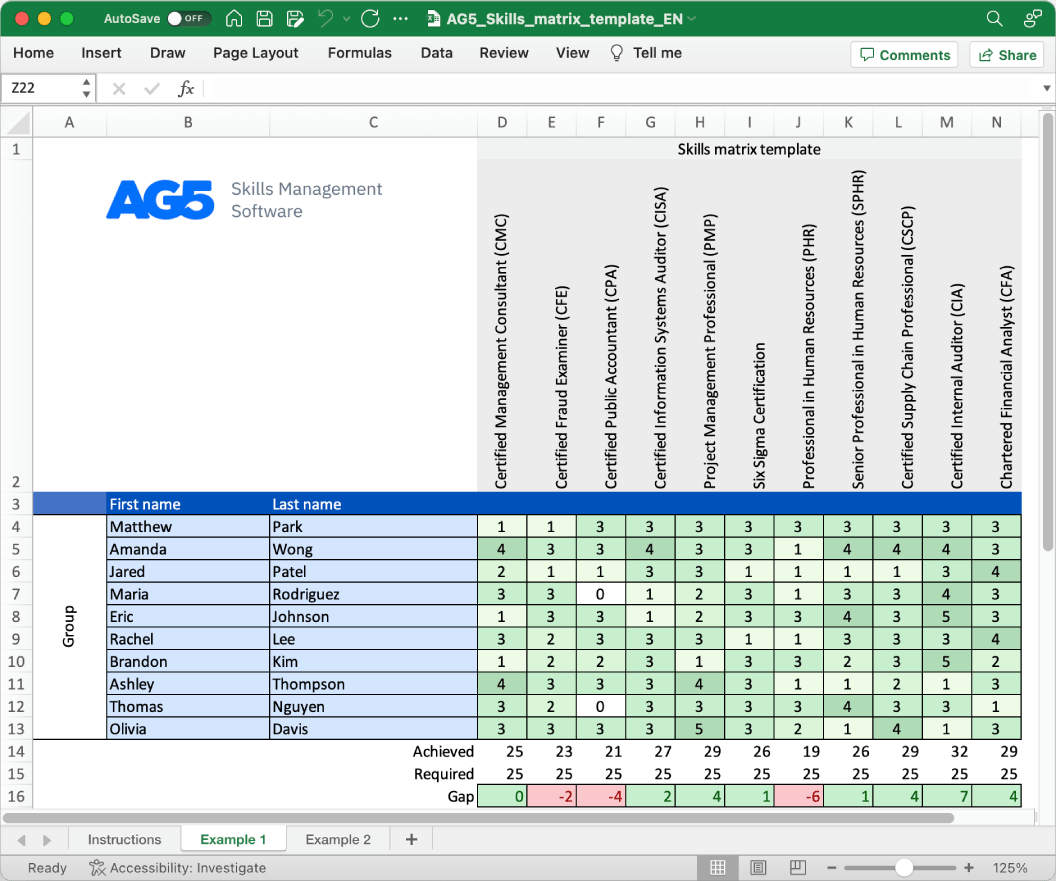IT skills matrix template
A skills matrix template is a tool that can be used in the IT industry to effectively manage and assess the skills and knowledge of individual employees or teams.
Download your free template here

Overview Copied
With our free IT skills matrix template, you will receive a clear overview of the skills that are present in your organization, as well as those that are missing. Using this information, you can develop and implement a plan to ensure that your employees’ skills are up to date, comprehensive, compliant, and ready for the future.
- CompTIA Security+
- Certified Information Systems Security Professional (CISSP)
- Certified Ethical Hacker (CEH)
- GIAC Certified Incident Handler (GCIH)
- Certified Information Systems Auditor (CISA)
- Certified in the Governance of Enterprise IT (CGEIT)
- Certified Information Security Manager (CISM)
- Certified in Risk and Information Systems Control (CRISC)
- Offensive Security Certified Professional (OSCP)
- Certified Information Security Professional (CISP)
Benefits Copied
Skills management software can help track the validity of certifications, expiration dates, and the skills and knowledge gained from achieving each certification. It can also help identify skills gaps and suggest training or development opportunities to fill those gaps.
Author Copied
Revisions Copied
Tired of managing skills in Excel?
Say goodbye to Excel matrices. Start using AG5’s plug and play skill matrix software.
Recognized by G2 for Excellence in Skills Management

